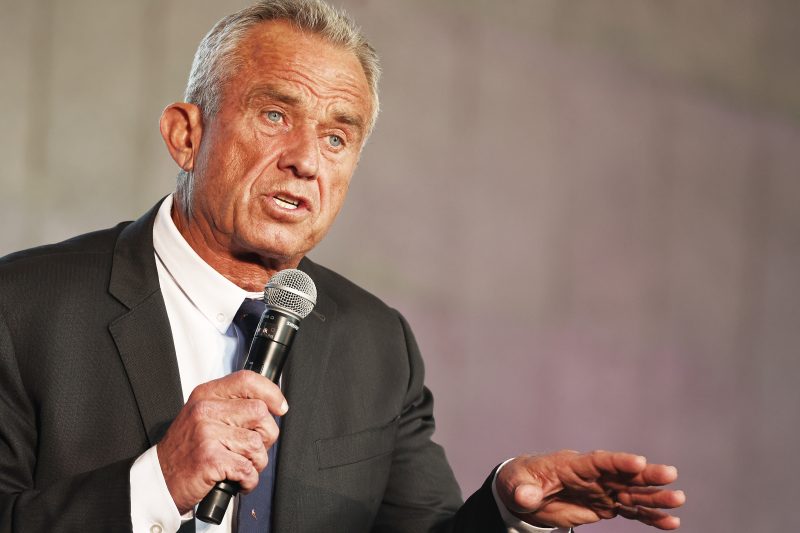The 2021 U.S. Capitol riot on January 6 remains a controversial event that continues to reverberate through the political landscape of America. Recently, Robert F. Kennedy Jr., an environmentalist and prominent member of the Kennedy family, found himself embroiled in a political storm after comments made by his political organization regarding the defendants involved in the January 6 incident raised eyebrows and sparked debate.
Kennedy’s organization, the Children’s Health Defense (CHD), described the individuals charged in connection with the Capitol riot as political prisoners. The email sent by CHD was aimed at mobilizing supporters to donate to the legal defense fund for these defendants, framing them as activists fighting for a cause. The memo attempted to garner sympathy and support for these individuals by characterizing their actions in a different light than the widely accepted view of the events of January 6.
However, the controversial email sparked backlash, leading to swift disavowal from Kennedy’s organization. CHD issued a statement clarifying that the email was sent without Kennedy’s knowledge or approval, emphasizing that the views expressed did not align with the official position of the organization. The organization sought to distance itself from the messaging of the email, perhaps in an attempt to protect its reputation and avoid being associated with sentiments that could be perceived as condoning or excusing the violence that occurred at the Capitol.
The incident highlights the delicate balance that public figures and organizations must strike when addressing politically charged events. In an age of heightened political polarization and social media scrutiny, statements and actions can quickly spiral into controversy and tarnish reputations. The case of CHD’s email serves as a cautionary tale of the importance of clear communication and consistency in messaging, especially on sensitive and divisive issues.
The controversy surrounding Kennedy’s organization also underscores the broader societal debate regarding the narrative and characterization of the events of January 6. While some view the individuals involved in the riot as extremists and insurrectionists, others may see them as political dissidents or activists fighting against what they perceive as injustice. The framing of these individuals as political prisoners by CHD reflects a divergent perspective that challenges the mainstream narrative of the Capitol riot.
Ultimately, the fallout from the email sent by CHD serves as a reminder of the power and pitfalls of language in shaping public perception and opinion. In a time of deep division and mistrust in American politics, the way in which events are framed and portrayed can have far-reaching consequences. As public figures and organizations navigate the complex terrain of political discourse, the case of Robert F. Kennedy Jr. and the Children’s Health Defense serves as a cautionary tale of the challenges and responsibilities that come with engaging in contentious debates and issues.

